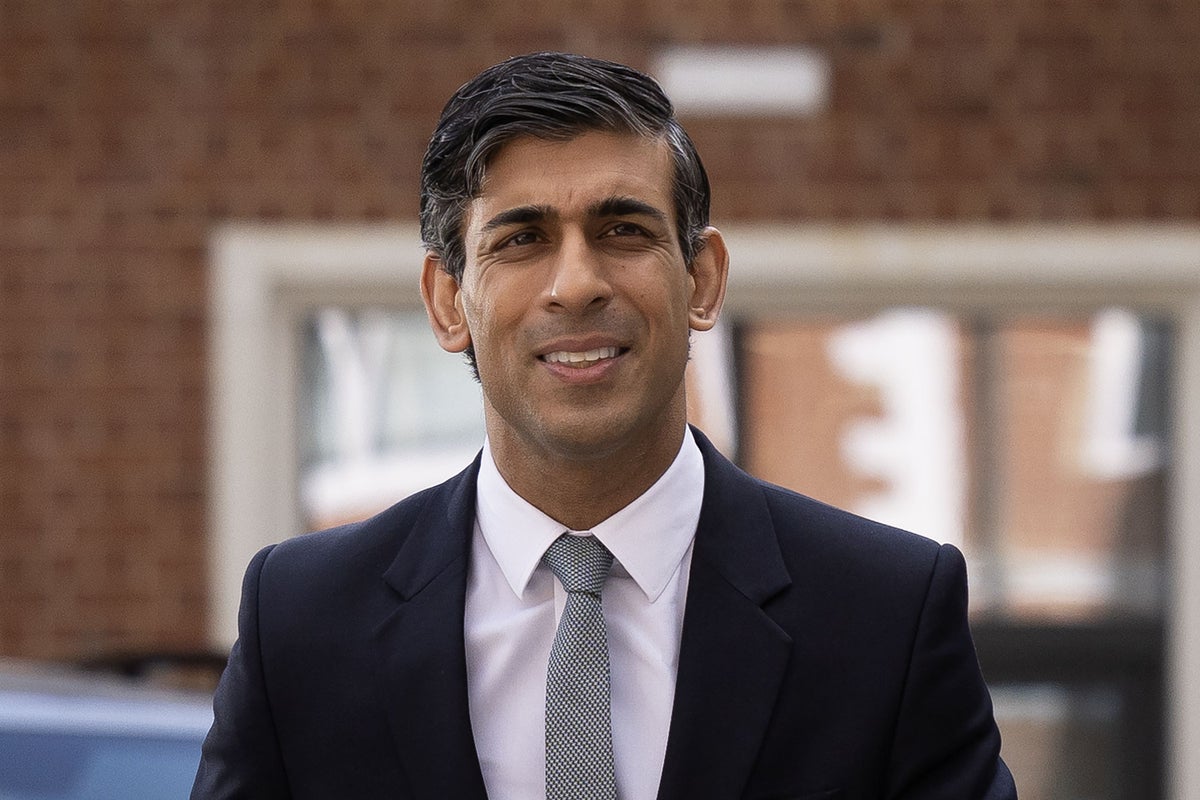
Rishi Sunak has “pushed the boundaries of international law” with legislation to tackle small boat crossings of the Channel, the Home Secretary has said.
Suella Braverman and the Prime Minister will on Tuesday unveil their plans to remove and ban asylum seekers from re-entry if they arrive in the UK through unauthorised means.
Mr Sunak argued that his new Bill, which is key to one of his five priorities for his premiership, will “take back control of our borders, once and for all”.
But critics have warned the proposals are “unworkable” and will leave thousands of migrants in limbo by banning them from ever claiming British citizenship again.
Despite plans such as forcibly removing asylum seekers to Rwanda being mired in legal challenges, ministers were expected to approach the limits of the European Convention on Human Rights with the new legislation.
Writing in the Telegraph, Ms Braverman said: “We must stop the boats and that’s what our bill will do. No more sticking plasters or shying away from the difficult decisions.
“Myself and the Prime Minister have been working tirelessly to ensure we have a bill that works – we’ve pushed the boundaries of international law to solve this crisis.
“If you come here illegally it must be that you cannot stay.”
A duty will be placed on the Home Secretary to remove “as soon as reasonably practicable” anyone who arrives on a small boat, either to Rwanda or a “safe third country”.
And arrivals will be prevented from claiming asylum while in the UK, with plans also to ban them from returning once removed.
Mr Sunak spoke to Rwanda’s president Paul Kagame before unveiling his plans, and pledged to continue working with him to ensure their stalled project works.
The Government has paid more than £140 million to Rwanda but no flights forcibly carrying migrants to the capital of Kigali have taken off because of legal challenges.
A Downing Street spokeswoman said: “The leaders committed to continue working together to ensure this important partnership is delivered successfully.”
The Prime Minister will meet France’s President Emmanuel Macron on Friday to discuss further cooperation that will be required to reduce boat crossings.
Mr Sunak admitted voters “have heard promises before” without seeing results, but insisted his legislation “will mean that those who come here on small boats can’t claim asylum here”.
He wrote in the Sun: “This new law will send a clear signal that if you come to this country illegally, you will be swiftly removed.”
The PM said it was a plan “to do what’s fair for those at home and those who have a legitimate claim to asylum — a plan to take back control of our borders once and for all”.
The Immigration Services Union representing border staff said the plans are “quite confusing” and do not seem “possible” without the Rwanda policy functioning.
Lucy Moreton, the union’s professional officer, also suggested on BBC Radio 4’s Today programme that smuggling gangs will tell people “quick, cross now before anything changes”, risking an increase in the number of crossings.
Labour leader Sir Keir Starmer raised doubts about the legality and feasibility of the plans after the last plan failed “to get us very far”.
“Now we’ve got the next bit of legislation with almost the same billing, I don’t think that putting forward unworkable proposals is going to get us very far,” he told LBC radio.
Asked if the plan was legally feasible, the Labour leader said: “I don’t know that it is and I think we’ve got to be very careful with international law here.”
The Prime Minister has made “stopping the boats” one of his five priorities and has been under pressure to tackle the issue amid dire polling figures for the Tories.
Almost 3,000 migrants have made unauthorised crossings of the English Channel already this year.
Refugee Council chief executive Enver Solomon said the plans “shatter the UK’s long-standing commitment under the UN Convention to give people a fair hearing regardless of the path they have taken to reach our shores”.
“The Government’s flawed legislation will not stop the boats but result in tens of thousands locked up in detention at huge cost, permanently in limbo and being treated as criminals simply for seeking refuge,” he added.
“It’s unworkable, costly and won’t stop the boats.”







